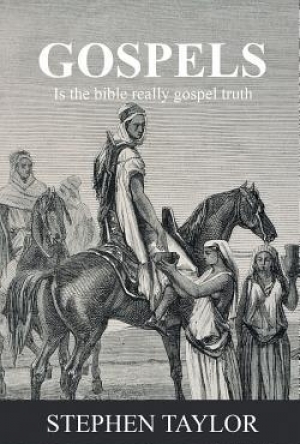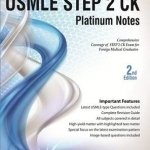
USMLE Platinum Notes Step 2: Step 2 CK
Book
USMLE Platinum Notes Step 1 and USMLE Platinum Notes Step 2 CK are the latest editions of these...
Journey into Social Activism: Qualitative Approaches
Book
Academic study of social activism and social movements has become increasingly prevalent over the...

3 Minute Motivators
Book
This jam-packed new edition of 3 Minute Motivators features more than 200 activities; 75% more...
Gareth von Kallenbach (980 KP) rated American Sniper (2015) in Movies
Aug 6, 2019
American Sniper sees Bradley Cooper as Chris Kyle in his second movie with “American” in the title (see 2013’s American Hustle). Most of us know the story of Chris Kyle, but for those that don’t here’s a quick rundown. Chris Kyle is the most lethal sniper in American history with 160 confirmed kills as a Navy SEAL, and another 95 probable kills. He served four tours, and wrote a book about his life. This film is based on that book. It tells the story of how he was influenced by his father, joined the military, and then went on to serve four tours while trying to balance his life at home with his wife and children. Acting as the true Sheepdog to all in his life, American Sniper looks at the struggle Kyle went through, and tells the story with passion and respect.
Cooper did a fantastic job portraying Texas-native Kyle. He was almost unrecognizable onscreen, as he put in 8 months of prep to get ready for this role, including a 4-hour a day training regime, and another two with a vocal coach. It was even said that some of Kyle’s brothers-in-arms who helped train Cooper and serve as consultants on the movie could feel his presence through Cooper at the end of training and all throughout filming. Sienna Miller was a great compliment to Cooper’s performance as Taya Kyle, Chris’ wife and the mother of his children. And not surprisingly, Clint Eastwood knocked it out of the park in this go at the Director’s chair. This is his best movie in years, though one would hope so with Chris Kyle’s father threatening to unleash hell if the memory of his son was disrespected with the film.
Mr. Kyle’s passing was a tragic event for those that knew him, and even those that did not know him. I think he may rest well knowing that this film, adapted from his own auto-biography, was handled beautifully with such passion and respect. If I have one issue with the film, it was the rapidity at which things progressed. So many different events packed into 15 minute segments with time just seemed to be rushing like a river, and glossing over parts of the story that could really have used some more build up or exploring. But such is the case when adapting a movie from a book. Though I am sure that movie-goers would not have minded lengthy the movie a bit, even with a run-time of 132 minutes.
If you see one movie this month, let it be American Sniper. If you have not heard of Chris Kyle, or his story, go see American Sniper. Hopefully, the Legend will live on through the lives he touched, and saved.
Is the Bible really gospel truth? This is the question the honourable, academic Robert Babcock aims to find out on his quest to find the earliest copies of the gospels in order to prove the reliability of the story of Jesus as recounted in the King James Bible. However, this is not the key focus of Stephen Taylor’s fictional novel, Gospels. The main character is the perfidious John Campbell-John, a rogue, imposter and swindler who flees 19th-century England in an attempt to escape from his debts.
John meets the magnanimous Robert in Venice and, despite being polar opposites, become firm friends. After being honest for the first time in his life, admitting to owing thousands of pounds in gambling debts, Robert offers John the opportunity to accompany him on his quest through the deserts of Egypt. John accepts and the pair finds themselves on an adventure of discovery and personal redemption.
John and Robert make an unlikely but excellent team. Robert’s knowledge of the Bible and ancient history is vital, however, John’s propensity for falsehoods and cunningness gets them out of a few scrapes and tricky situations. Nonetheless, it is difficult for John to give up his old ways and his insular behaviour threatens to get them in more trouble.
Fortunately, Robert’s humility begins to influence the young scoundrel, as does his penchant for historical artefacts. As the story progresses, John begins to leave his past behind and becomes interested in Robert’s work, learning new things about Egyptian culture and the origins of the Bible. However, when a new gospel comes to light that threatens the whole of Christianity, Robert does not know what to do; and only John can give him counsel.
John Campbell-John is a character that the author introduced in a previous book. However, the timelines are not sequential, therefore Gospels is a stand-alone novel. The time frame for this book needed to be set in 1835 to correspond with historical truths. Although Robert’s discovery of a Gospel of Thaddeus Jude is an invention of the author, the quest itself is based on the journeys of three 19th-century Bible hunters. Stephen Taylor has conducted an enormous amount of research, including the biographies of Robert Curzon, Constantin von Tischendorf and Émile Amélineau who, on separate occasions, sought the same knowledge as the fictional Robert Babcock.
Despite being titled Gospels, the novel, for the most part, focuses on John Campbell-John and his wicked ways. Through a first-person narrative, John explains his past, his betrayal of a friend, and his addiction to gambling. Initially, he has no qualms about his behaviour and acts only for himself and his selfish greed. Whilst Robert goes in search of knowledge, John goes on a journey of redemption, coming to terms with his previous wrongdoings. However, acknowledging these faults is not enough, he needs to turn away from these roguish ways.
It is disappointing that the narrative does not focus more on the gospels, both real and imagined. There was enormous scope for an in-depth look at the life of Jesus and the inconsistencies in the Bible. The fictitious Gospel of Thaddeus Jude evokes a similar reaction in Robert as the Non-Canonical Gospel of Thomas found in the 19th-century had on many devout Christians. There was so much potential with this direction of thought, however, the author passes over it in preference to the life of John Campbell-John.
Slow to begin but increasingly interesting as it progresses, Gospels is a book of many themes. History, both 19th-century and ancient; religion, although not a Christian story; and achievement and absolution combine together to produce a unique tale that takes the reader from the back alleys of London to the River Nile and the deserts of Sinai. A subtle clue in the prologue keeps readers alert as they await the conclusion of the adventure – an ending that ambiguously reveals whether John moves on from the follies of his past.
Is the Bible really gospel truth?</i> This is the question the honourable, academic Robert Babcock aims to find out on his quest to find the earliest copies of the gospels in order to prove the reliability of the story of Jesus as recounted in the King James Bible. However, this is not the key focus of Stephen Taylor’s fictional novel, <i>Gospels</i>. The main character is the perfidious John Campbell-John, a rogue, imposter and swindler who flees 19th-century England in an attempt to escape from his debts.
John meets the magnanimous Robert in Venice and, despite being polar opposites, become firm friends. After being honest for the first time in his life, admitting to owing thousands of pounds in gambling debts, Robert offers John the opportunity to accompany him on his quest through the deserts of Egypt. John accepts and the pair finds themselves on an adventure of discovery and personal redemption.
John and Robert make an unlikely but excellent team. Robert’s knowledge of the Bible and ancient history is vital, however, John’s propensity for falsehoods and cunningness gets them out of a few scrapes and tricky situations. Nonetheless, it is difficult for John to give up his old ways and his insular behaviour threatens to get them in more trouble.
Fortunately, Robert’s humility begins to influence the young scoundrel, as does his penchant for historical artefacts. As the story progresses, John begins to leave his past behind and becomes interested in Robert’s work, learning new things about Egyptian culture and the origins of the Bible. However, when a new gospel comes to light that threatens the whole of Christianity, Robert does not know what to do; and only John can give him counsel.
John Campbell-John is a character that the author introduced in a previous book. However, the timelines are not sequential, therefore <i>Gospels</i> is a stand-alone novel. The time frame for this book needed to be set in 1835 to correspond with historical truths. Although Robert’s discovery of a Gospel of Thaddeus Jude is an invention of the author, the quest itself is based on the journeys of three 19th-century Bible hunters. Stephen Taylor has conducted an enormous amount of research, including the biographies of Robert Curzon, Constantin von Tischendorf and Émile Amélineau who, on separate occasions, sought the same knowledge as the fictional Robert Babcock.
Despite being titled <i>Gospels</i>, the novel, for the most part, focuses on John Campbell-John and his wicked ways. Through a first-person narrative, John explains his past, his betrayal of a friend, and his addiction to gambling. Initially, he has no qualms about his behaviour and acts only for himself and his selfish greed. Whilst Robert goes in search of knowledge, John goes on a journey of redemption, coming to terms with his previous wrongdoings. However, acknowledging these faults is not enough, he needs to turn away from these roguish ways.
It is disappointing that the narrative does not focus more on the gospels, both real and imagined. There was enormous scope for an in-depth look at the life of Jesus and the inconsistencies in the Bible. The fictitious Gospel of Thaddeus Jude evokes a similar reaction in Robert as the Non-Canonical Gospel of Thomas found in the 19th-century had on many devout Christians. There was so much potential with this direction of thought, however, the author passes over it in preference to the life of John Campbell-John.
Slow to begin but increasingly interesting as it progresses, <i>Gospels</i> is a book of many themes. History, both 19th-century and ancient; religion, although not a Christian story; and achievement and absolution combine together to produce a unique tale that takes the reader from the back alleys of London to the River Nile and the deserts of Sinai. A subtle clue in the prologue keeps readers alert as they await the conclusion of the adventure – an ending that ambiguously reveals whether John moves on from the follies of his past.
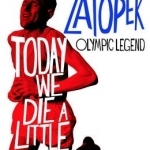
Today We Die a Little: The Rise and Fall of Emil Zatopek, Olympic Legend
Book
LONGLISTED FOR THE WILLIAM HILL SPORTS BOOK OF THE YEAR AWARD. The definitive biography of one of...
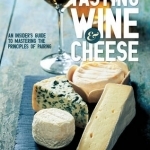
Tasting Wine and Cheese: An Insider's Guide to Mastering the Principles of Pairing
Book
Broaden your palate and enhance your appreciation for gourmet flavor combinations withTasting Wine...
Hazel (1853 KP) rated Trying to Float: Coming of Age in the Chelsea Hotel in Books
Dec 17, 2018
Written about a young girl by a young girl, <i>Trying To Float</i> is the amusing, witty story of Nicolaia Rips’ life thus far. About to graduate from LaGuardia High School for the Performing Arts in New York City, Nicolaia talks the reader through her life from birth, through preschool and elementary school, before coming to rest at the end of her middle school experiences.
As the strap line <i>Coming of Age in the Chelsea Hotel</i> indicates, Nicolaia has lived in the Chelsea Hotel in New York for her entire life. Her unconventional father and travel obsessed mother decided to settle there after the birth of their only child, resulting in an unusual upbringing surrounded by avant-garde writers, artists and musicians, as well as the plethora of drug addicts, alcoholics and eccentrics.
Although Nicolaia’s lifestyle caused her to be the worldliest wise of five year olds, she was completely alien to the knowledge of friendships, hard work and the generally accepted behaviour of children. This resulted in numerous, often awkward, situations throughout her schooling which, although must have been soul destroying at the time, Nicolaia writes in a highly amusing tone.
<i>Trying to Float</i> reminded me of a television programme aired on the BBC last year: <i>The Kennedys</i> – a story of the daughter of highly peculiar and embarrassing parents, who was constantly surrounded by a mass of oddball characters. I could not help but see similarities even though there is absolutely no correlation between the two stories.
While Nicolaia has based this book on a journal she kept during her childhood, there are many scenes that have been warped by exaggeration and imagination to add comedic effect. Due to this, her original writing has been worked over so much in order for it to flow like a story, that it is more fiction than biographical.
It is not completely clear who the target audience is. Naturally a story about a child’s experiences at school would relate more to young adults, however the coarse language used by the inhabitants of the hotel make it more appropriate for adults. Whatever your age and background, you are likely to relate to something in this gem of a book. Nicolaia makes light of her experiences, but deep down it is a very heart-wrenching story.
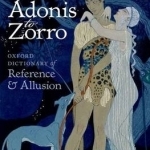
Adonis to Zorro: Oxford Dictionary of Reference and Allusion
Andrew Delahunty and Sheila Dignen
Book
Allusions form a colourful extension to the English language, drawing on our collective knowledge of...


